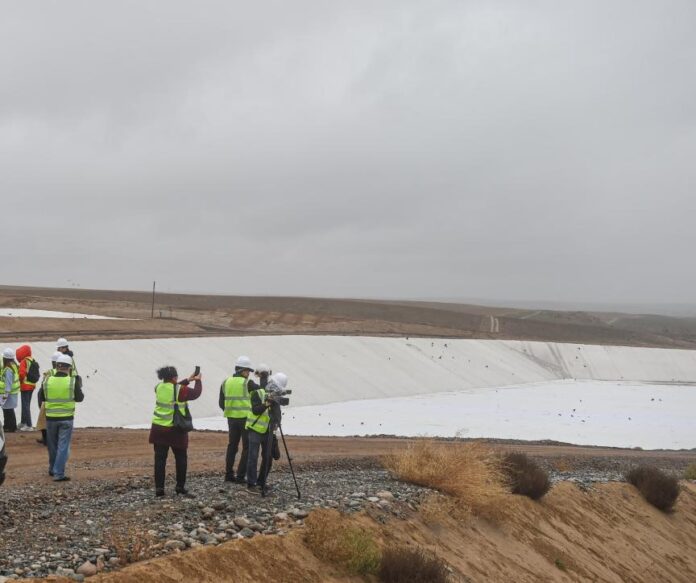The European Bank for Reconstruction and Development (EBRD) and the European Union (EU) have supported a significant infrastructure project that will benefit over one million people living in Bishkek, the capital city of the Kyrgyz Republic.
The project involves the construction of a new landfill in compliance with national and EU environmental regulations, making it the first of its kind in the country. The landfill has a storage capacity of 1.9 million m³ and will allow the city to dispose of solid waste safely and efficiently for the next ten years. In addition, the landfill has a base sealing system that enables the capture and treatment of leachate, a contaminated liquid that emits a strong odour, preventing groundwater contamination.
Tazalyk, the municipal waste management company, received a €22 million package of loans and grants from the EU and EBRD. This funding helped the company improve its operational management by installing a new billing system and acquiring modern waste-collection trucks and a GPS tracking system to monitor them. Additionally, new waste collection points were constructed to encourage responsible waste disposal.
The project aims to improve waste collection, replace outdated equipment, establish a new sanitary landfill, and introduce waste minimisation measures in Bishkek.
The EU Ambassador to Kyrgyzstan, Marilyn Josefson, said that EU grants and EBRD loans funded the project and will help the city become more environmentally friendly by significantly improving municipal services and air quality.
Kyrgyzstan has received over €100 million in grants from the European Union, which was leveraged to provide €205 million for projects supporting the water, solid waste, and energy sectors in partnership with EBRD. Fifteen cities and eight villages across the country have benefited from this support.
EBRD has invested €879 million in the Kyrgyz Republic through 221 projects, with most funds supporting private entrepreneurship. Additionally, it invested around €160 million in 24 water projects in 20 municipalities nationwide.

